Becoming a Filmmaker is a Game of Patience, Persistence, and Strategy
Article by Colette Nichol, Solo Filmmaker and Story Strategist
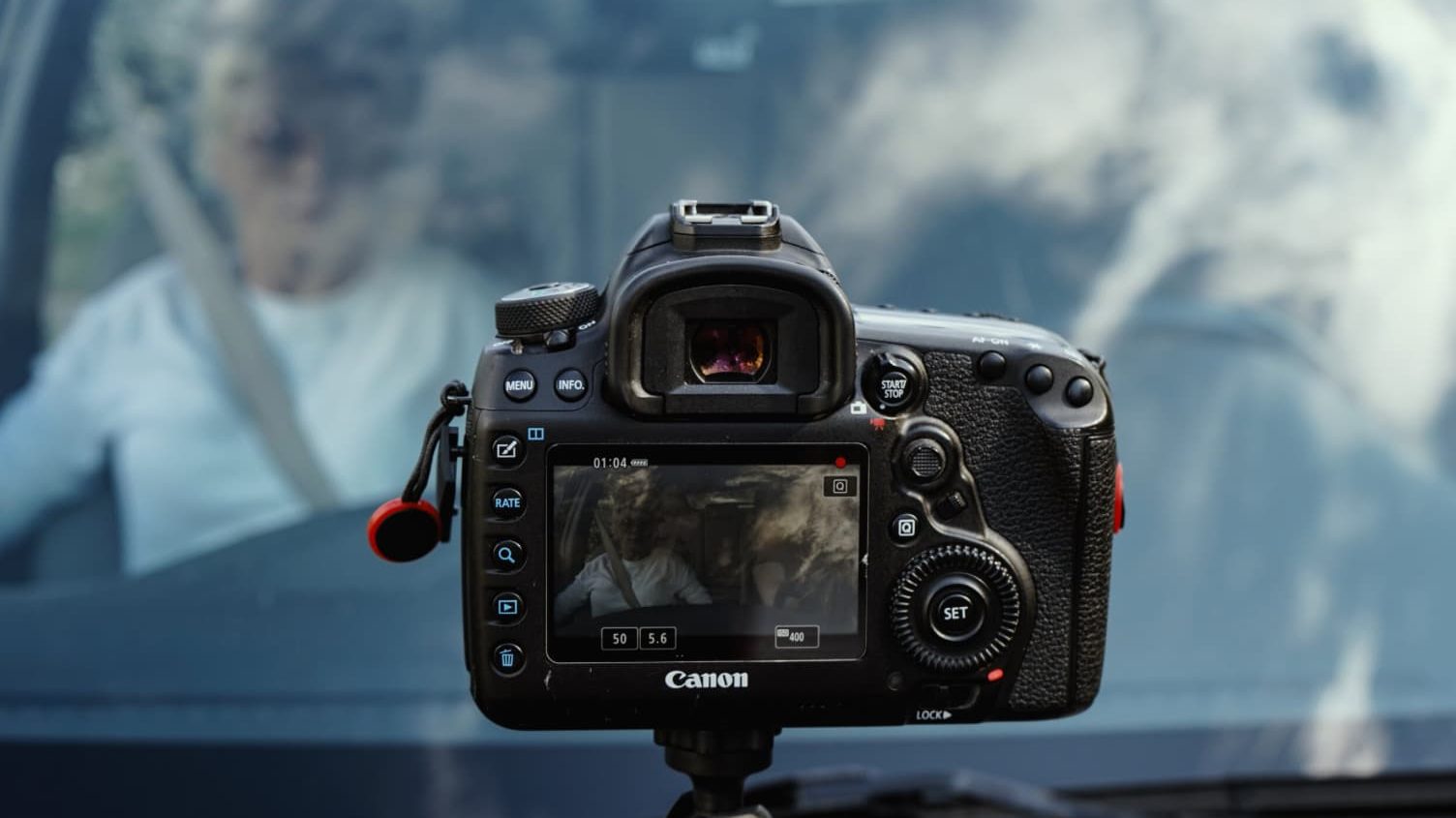
Anyone Can Become a Filmmaker: Here’s How
How to become a filmmaker? You can become a filmmaker by going to film school, taking online courses, or getting started with small projects on your own.
These days you can learn filmmaking online by watching YouTube videos, or you can take an online filmmaking course to speed up your learning.
How to Become a Filmmaker
These are a couple of ways you can become a filmmaker in 2023:
- Start doing small projects on your own.
- Watch YouTube videos to learn how to edit.
- Read filmmaking books to learn about shot sequencing.
- Take a weekend filmmaking course.
- Take an online filmmaking course that provides you with feedback on your work.
- Go to film school for the network, not the education.
- Start doing paid gigs as soon as your skills are good enough.
- Create short films as a solo filmmaker or with a small crew.
- Create micro-documentaries to hone your storytelling skills.
- Practice directing and producing by making short films.
- Build your network by working on other people’s projects.
- Use film festival as another chance to network.
Begin by creating short films with low-cost gear.
Build up your producing and directing chops, and slowly expand the scope of your projects. The most important skills you need to have as an independent filmmaker are directing, storytelling, producing, and editing. To learn these skills, you need to start making small projects and learning from your mistakes.
You don’t have to wait around to get your projects greenlit.
You can slowly build your skills while building your portfolio and body of work.
There’s more than one way to become a filmmaker
OK, let’s dig deeper into how to become a filmmaker.
I wish that there were an easy answer. Since there’s more than one type of filmmaker, there are also many ways to become a filmmaker. This post will cover many different options for you. While I’ve taken the path of solo filmmaking, you might choose a traditional path. Keep reading to get a better idea of all your options.
But whatever you choose, make sure you get started.
Don’t let anyone tell you that you can’t become a filmmaker. You can! Everyone starts as a beginner. The one thing that remains the same for everyone is that we all have to take small, consistent steps forward to fulfill our filmmaking dreams. Whether you want to direct films or become a freelance filmmaker, this post will help you map out a plan.
Watch the Video: How to Become a Filmmaker
Table of Contents
1. VIDEO: How to Become a Filmmaker
3. 10 Steps to Becoming a Filmmaker
4. Tiny Tips for Aspiring Filmmakers
6. Common Questions about How to Become a Filmmaker
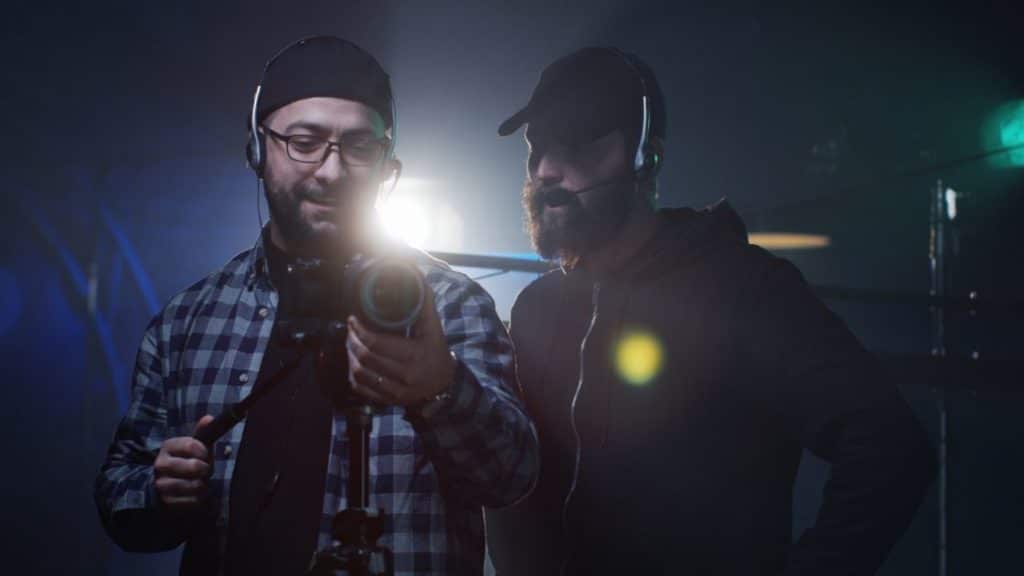
Filmmaker Education Requirements
First, let’s get the question of education requirements for filmmakers out of the way.
There are no filmmaker education requirements. You can go to film school, get a bachelor’s degree, and become a filmmaker. But you can also go to film school and never become a filmmaker. Going to film school isn’t an automatic pathway to long-term success as a filmmaker. The film industry is a tough business, so it’s important to be realistic. There are no free rides and no guarantees. But when you have a legitimate skill set and experience, your chances of long-term success are much higher.
So the better question is, what skills do you need to become a filmmaker or film director?
You need to learn how to produce, lead a project, edit, structure your shots for the edit, and work with subjects or talent. These are the fundamental skills, so how will you get them? You decide.
You can learn on your own by watching a lot of YouTube videos and making small projects. Or you can go to film school or take online filmmaking classes.
What is a filmmaker?
One of the most famous 21st-century filmmakers, Casey Neistat, has never made a feature for the big screen. He’s an online video content creator, i.e. filmmaker who has made thousands of short films. He’s also made a TV show for HBO. But it’s his short online films that have made him a household name in the US.
When we think of the word filmmaker, the image of a man running a large crew (probably wearing a baseball hat) often pops into our heads.
This imaginary filmmaker is huddled with his DP (Director of Photography) and AD (Assistant Director), knuckling out the next shot while a busy crew buzzes around him like a horde of technical bumble bees.
Expanding the Definition of Filmmaker
Let’s expand the definition of filmmaker to INCLUDE people from all backgrounds and genders who create stand-alone story-based moving pictures.
Look at the image below; even Google thinks most filmmakers wear baseball caps and are men! I am happy that Phillip Bloom shows up in the results because he’s awesome.
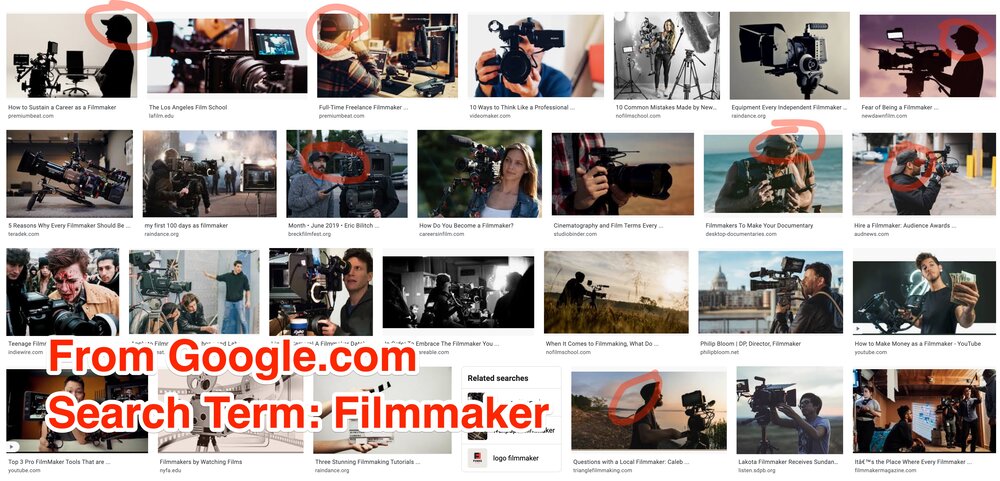
Whether you make short films, feature films, brand videos, wedding videos, music videos, micro docs, PSAs, or art films, you are a filmmaker.
Heck, if you make television, we could probably still call you a filmmaker.
A filmmaker is someone who gets movies made. This means that not all film directors can actually be called filmmakers. If a studio comes to you with the script, producer, and stars, and you direct the film, are you really a filmmaker?
I’d say…mmm, I dunno. But maybe I’m just a blue-collar elitist.
If you find the script or write it yourself, co-produce, and direct the film, then yes, you’re a filmmaker. And probably a damn good one.
A Filmmaker Is Someone Who Gets Films Made
They don’t sit around in their pyjamas and wait for the scripts to roll through their door like a dim sum cart at Sunday brunch.
Not all filmmakers have the exact same skillset. Some filmmakers may not even know how to use a camera or light a shot. While other filmmakers may be cinematographers in their own right. If you’re a solo filmmaker, you know how to do every damn thing on set. You’re a filmmaker, sound recordist, grip, gaffer, DP, AD, and director.
With this broader modern definition of a filmmaker in play, let’s discuss how you become one.
RELATED READ: Everything you need to know to start learning Filmmaking online
But wait, why should you listen to me?

Is my advice relevant?
I’ve been a shooter and editor since 2013.
I’m an almost totally self-taught solo filmmaker. I say self-taught, but in reality, everybody learns from others. I first learned filmmaking for free in high school as part of a two-year film production program that was both an incredible experience and a total farce—more stories about that another day.
Then I did nothing with filmmaking for 10 years. In fact, I became an actor and later an ESL teacher.
When I was 28, I finally bought a DSLR and got down to the messy task of learning solo filmmaking.
Thanks to reading an armful of books and watching thousands of tutorials and then getting out there, I learned how to make complex short films by myself. Then, I launched my business, and I started working professionally.
For the past seven years, I’ve made hundreds of micro films, met people from both sides of the industry (solo filmmakers and crew-based filmmakers), and taught students the art of solo filmmaking. Still with me?
Let’s break down the practical and tactical steps you need to take to become a filmmaker.

10 Steps to Becoming a Filmmaker
Step 1: Decide what kind of filmmaker you want to be.
You’re not going to specialize in every single genre of filmmaking.
So what’s your jam? Do you want to become a big-budget feature filmmaker, an indie filmmaker who focuses on dramas, a documentary, or a wildlife filmmaker? Know your genre and zone of filmmaking and become an expert at that.
If you want to become a narrative feature filmmaker, what genre are you in love with? Action, adventure, comedy, rom-com, heist, buddy comedy? Watch all the best films in that genre and get to know the expectations your audience will have. Watch the flops and figure out why they flopped.
Getting started, you need to pick your genre.
It doesn’t mean you’ll only stick to that genre your whole career. But the only way to get good at storytelling is to start by understanding one genre.
Step 2: Decide if you want to go the traditional route or not.
Do you really need to go to film school to pursue this passion?
Filmmaking isn’t like surgery. You don’t need a traditional degree to become successful. Later in this post, you’ll read some success stories from big-name directors who never went to film school. You’ll also hear some failure stories from those who did go to film school. There are many success and failure stories from people in both the film school and the no-film school camp. Neither route is a guaranteed path to success. Yet, somehow many people believe that film school automatically gives you a free pass into the director’s chair. There’s no bigger myth in the world of high-ticket education.
Should you go to film school?
The critical decision around film school comes down to this one main question: would you rather spend your money on gear or an extensive multi-year education program?
In film school, you’ll meet people. With gear, you’ll make things. You decide. For the gear route to work, you need to be a self-starter. You’ve got to be cool with making your own rules and structure.
Of course, you make shorts in film school, but the truth is you make a lot less because you’re learning theory and working with a crew. You also don’t usually own your work when you make it at film school — despite your hefty tuition fees, the school often owns all works created by students
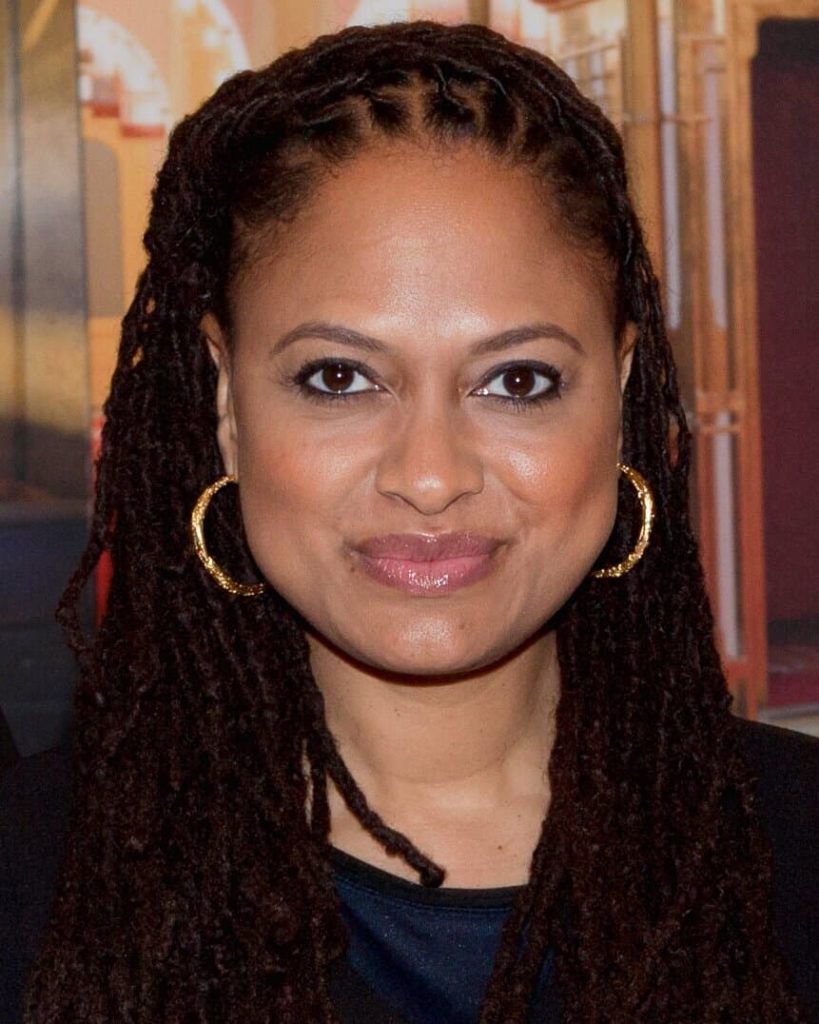

Neither Ava DuVernay nor Christopher Nolan went to film school.
Other luminaries who didn’t go to film school include Wes Anderson, Terry Gilliam, Steven Spielberg, Stanley Kubrick, Tarantino, the Wachowskis, Ethan Coen (but Joel did go to film school), Robert Rodriguez, Kathryn Bigelow (she studied painting), Hertzog, Pedro Almodóvar, and Steve McQueen (he dropped out of film school because “they wouldn’t let you throw the camera up in the air.”
Some top directors who did go to film school include Richard Linklater, Patty Jenkins, Jane Campion, Francis Ford Coppola, and Martin Scorsese.
Obviously, there are thousands of more directors. This is just to show that there’s no one right path to become a filmmaker.
Step 3: Consider the non-traditional route: DIY or Online Filmmaking Courses.
There are hundreds of online filmmaking courses.
Most of them are not comprehensive. There are a lot of lecture-style courses and tutorial-style courses on various areas of filmmaking. You’ll need to pick up a little here and a little there. But with those courses, some YouTube videos, and some books, you can cobble together an education. Then comes the most important part: making work.
You become a filmmaker by making films.

Step 4: Start building a body of work as a filmmaker.
Everyone starts from nothing.
You don’t go from aspirant to master in a day. You won’t even know your style when you’re starting out. You’ll probably make stuff that’s reminiscent of your favorite director. But over time, as you create more short films and microfilms, you’ll develop a style. Your body of work will drive others to work with you. You’ll gain confidence. And you’ll get to do what you love: make films!

Step 5: Challenge yourself constantly.
Always be stretching and growing.
The difference between the people who stay in it and stick with it and keep creating is that they’re always challenging themselves. Werner Herzog has made at least 60 films. He’s not sitting back on his laurels. He challenges himself with each film, approaching new subject matter and refining his storytelling with every project. If your daily aim is to get 1% better in all areas of filmmaking, your work will eventually be outstanding.
For you nerdy-types, this is called the aggregation of marginal gains, and it’s one of the best ways to become a master of anything. Slow microscopic gains over time are how you win.
Step 6: Know where you want to go, i.e. have a big vision for yourself and create a simple roadmap.
Map out where you want to go. You don’t necessarily need to know exactly HOW you’ll get there. But have the destination in mind. | photo from Unsplash

Where do you want to go?
What’s the big vision? In 20 years, where do you want to be, and what do you want to be making? Have a vision for yourself that you care about, and that sustains you. And know why this vision matters. From that big vision, decide on your simple roadmap.
Will you go be a Production Assistant (PA) and work your way up? Will you go to film school and then be an all-star networker? And will you build a body of work and then go after government funding? Will you become an online media creator and do short films for the online space?
What are the basic stepping stones that’ll give you the SKILLSET to do what your big vision dictates?
Step 7: Connect with other artists, filmmakers, technicians, directors, writers, and actors.
Even if you’re going the DIY route, you need to start exposing yourself to the work and ideas of other filmmakers who are at a similar place to you.
There might be a film society in your town or a filmmaking contest, or you could simply start engaging in Vimeo Weekend Challenges. Even if your aim is to be a professional solo filmmaker, you’ll want to collaborate. Collaboration generates growth.
Step 8: Be amazing to work with.
This applies to everything in life, but all too often, we think our talents and skills are enough.
They aren’t. You have to be amazing to work with. Filmmaking can have long days and long project timelines. Nobody wants to work with someone who is a complainer or a lay-about.
Step 9: Don’t give up.
You need patience, persistence, and to be playing the long game.

You’re more likely to succeed if you’re in it for life.
If you say to yourself, this is my vocation, and I’ll do what it takes, then you’ll slowly get there. You won’t be disappointed if it takes you some time. What is time anyway? (A mental construct) What’s the rush? (Your ego) Get started now, and keep going.
Only 3% of low-budget feature filmmakers went on to make a second feature film. Being a filmmaker requires more than one stroke of luck. It requires persistence. If that’s the case, what are you waiting for?
Don’t wait to get started — you won’t be more qualified in 10 years. You’ll have the same skill set and limitations. Pick up a camera and get started today.
Step 10: Balance passion projects with money projects.
Filmmakers take a lot of hits for doing big money projects, but real talk: that’s how you finance the passion projects.
I love making brand videos for small companies. If it’s a brand video or educational video centered around people, then I enjoy making it. The pay is good (because I run my own business) and the clients are fun to work with.
This is a great way to make money while improving my skillset.
I’ve also worked on unpaid short film projects, unpaid micro docs, done stop-motion animation for a big-name brand, and made a ton of educational videos.
With every project, I learn something new. You can too! Don’t discount the freelance/contractor path as a way to learn, do what you love, and make money at the same time.
Bonus Step: Get obsessed with good storytelling.
The only reason to make films is to tell stories.
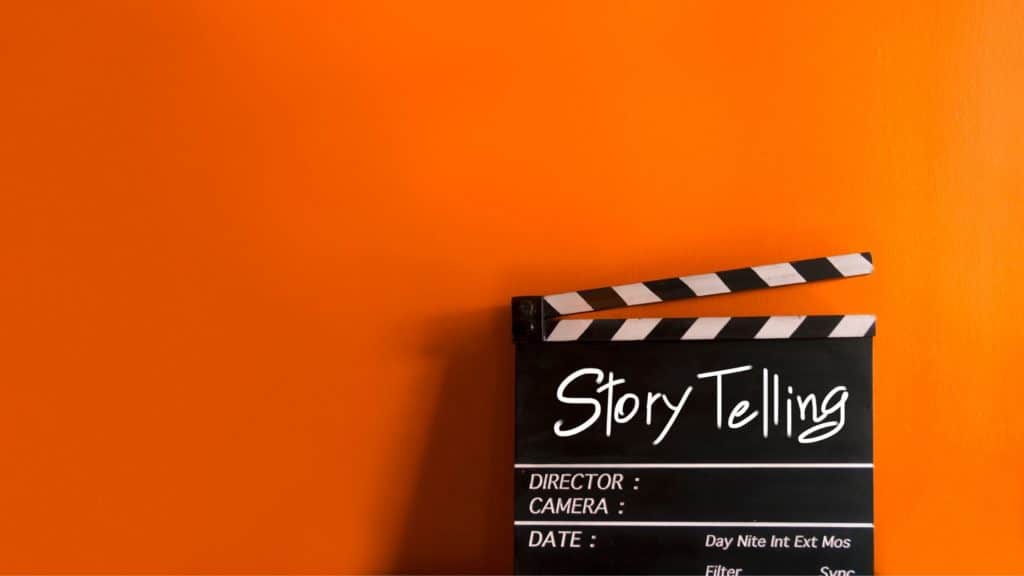
That’s it. Ain’t nothing else you’re trying to do here. Yes, you want to tell the stories visually (because that’s movie magic!), but at the end of the day, it’s the story that matters more than the visuals. The story is everything. EVERYTHING.
Get started by reading the following essential books on storytelling/screenwriting:
The Writer’s Journey: Mythic Structure for Writers by Christopher Vogler
Story by Robert McKee
Save the Cat by Blake Snyder
Adventures in the Screentrade by William Goldman (this book is written by one of the world’s greatest screenwriters and it’s a heck of a good read!)
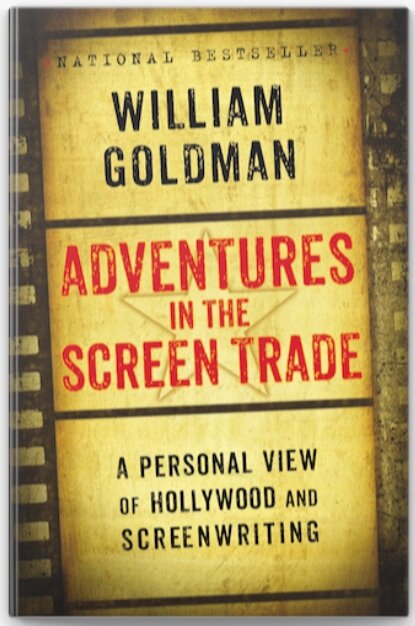

Quick Tips for Aspiring Filmmakers
1976 was the year of the Lady Bug plague in Europe.
After a long hot summer, an increase in the Lady Bug’s favorite food (aphids) meant their numbers skyrocketed. The same could be said for the 21st century and filmmaking grads. Since the 1960s more and more schools have created film programs, and the number of film school grads has gone through the roof. But most of them don’t become filmmakers. That’s why I advocate for learning solo filmmaking and starting by creating your own work. You don’t need anyone’s permission to become a filmmaker. You just need to start making films

On Getting Paid to Make Films
There are a lot of grants out there.
You might realize how much free government money is floating around to support your work. Sometimes there’s even corporate money floating around. There are usually stipulations for getting that money that is annoying. But if it’s that or nothing, go for the grants. At least check them out and see what’s possible. Something on offer might appeal to you. If you haven’t checked grants in your country, state, province, and city, make that a priority.
On Making Friends with a Producer
If you find someone willing to help you produce your work, take them up on the offer!
This won’t come around too many times. I offered to help produce someone’s short film. They didn’t take the offer. Three years later, they still haven’t made the film. Would I have gotten it done? Yes. People always have ulterior motives, but their agenda probably lines up with yours.
On Becoming a Good Editor
As soon as you know how to edit on a professional system, you can start making money while improving your skills.
Do this by finding gigs on Upwork and similar freelance sites. You’ll want to take your work off those sites eventually as you grow your portfolio. But it’s a great way to practice editing with a hard deadline. Editing requires a lot of practice before you get really good at it. But it’s not complicated to learn the basics.
On Starting a Biz
Start your own biz to get experience.
You can start out charging a tiny sum for a video. Maybe you just charge $500 for a film. But you knock it out of the park. Keep raising your rates with each film you make and keep improving your production values. Eventually, you’ll be charging $5,000+ for your work. The way to get the most experience is to work on multi-video projects.
On Working for Free
Work for free to start out!
If you spend too much time on forums with crusty old film veterans, you might think you deserve to get paid right out of the gates. You don’t. If you’re totally green, work for free.

It’s okay to work for free to gain experience and confidence.
And it’s also okay to work for free when you’re later in your career because you’re looking to grow credits and portfolio on bigger projects. It’s just a chess game. You make moves that take you towards an “end goal” that you find interesting. (Really, there is no end goal because you’ll get there and invent a new goal…but anyway…)
On Working for Cheap
It’s also okay to work for cheap too.
You’ll stop doing free projects because you’ll realize your work provides great results. Then eventually, your work will become much more professional and the cost to your clients will reflect that. That’s the path. As long as you know, there are three stages, you won’t get ahead of yourself.
On Having a Portfolio and Website
As soon as you have a portfolio, get a website with your name as the domain i.e. be searchable!
How many times have I seen the name of a technician on the credit crawl of a short film project and then tried to find them by googling their name? Hundreds of times. HUNDREDS. This makes me mental.
If you can’t be found, you won’t get hired, and your portfolio is going to waste.
Because I am easy to find online, I’ve gotten tons of opportunities. I’ve had clients find me randomly after 3 years because they googled my name. They didn’t know I had a website. They didn’t know my email address. And they knew my NAME. I have gotta say that again. They remembered my name and they GOOGLED it.
Friend, you’ve got to have a website that’s centred around your name.
It has to have info about you, show your work, and make it possible to contact you. This will pay off. Promise. Don’t think it’ll pay off right away. Squarespace advertisements will make you think you’re going to be profesh the second you have a website.
Not true.
But over the coming years, having your own site that allows people to find you by name and contact you will pay off big time.
I’ve booked over $100,000 in work because people could find my name online.
One last tip: buy a domain name that correlates with your name (Ex: www.colettenichol.com) and slowly build a website as you build your portfolio.

VIDEO BREAK
Should you follow your dream?
In this video, Spielberg will tell you the secret to knowing exactly what to do in your career and life. Should you go to film school? Should you dedicate your life to this? He’s got the answer all wrapped up in a perfectly told story.
Film School Stories
How hard is it to become a filmmaker?
Truth: no matter what you do in life, there are no guarantees. So you might as well just do whatever sounds fun, feels exciting, and has a half-decent strategy. Also, make sure any big dream you have is something you’re willing to do for life. It could take 10-15 years to build your career to a place where you feel you’re on solid ground.

I’m not going to use real names of the people whose stories these are because this isn’t about knocking anyone or telling you to follow someone else path.
I also do not have anyone’s permission to share their stories. But they’re not exactly dark cloak and dagger stories. I’m sure they won’t mind.
Read these stories and see if you relate to any of them.
Everyone has their own best path. There is no right or wrong way to pursue your dreams.
I’m sharing these stories because I want to debunk the myth that going to film school = becoming a filmmaker.
Instead, you become a filmmaker by making moving pictures. That’s it.
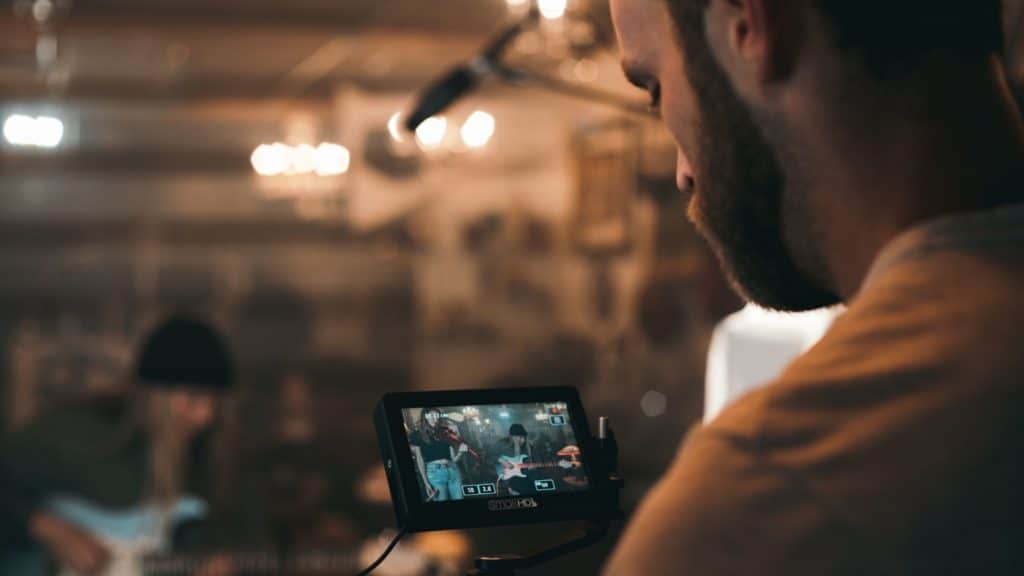
Weinstein and Beyond
Julia went to a prestigious film school in London, England.
She was passionate about filmmaking. She specialized in editing and wanted to become an editor. Then she went and worked at the Weinstein company and began to hate the industry. She’s since changed careers. She never made her own films. But she has a great life doing something else that she loves.
The Film Writer
Maggie is a blogger.
She spent 5 years in film school, getting a formal degree. She wrote a bunch of scripts and then went to work for a big online filmmaking blog, and years later has never made a film. But, she’s still got the dream.
The Long Road in South America
Jose went to film school for two years in his home country of Argentina.
He got a scholarship but still had to put money towards his education. His family helped him. They paid for most of his tuition. They bought him a computer. Now he’s graduated and is doing small gigs working for businesses, but he doesn’t have high-end gear. He’s turning jobs down because he can’t afford the gear needed to deliver the quality required by potential clients.
He’s going to need more investment money from his family to get the gear he needs to work on pro-client gigs. Or he’ll need to work in a low-level industry position and work his way up while saving every cent for gear. But Jose is already a filmmaker because he makes his own solo films constantly. He practices his art while working towards growing his career. He’s in it for the long haul.
The Photographer
Mark went to film school in Australia and became a camera operator.
He then moved to England and become a film editor for a company that made corporate videos. After that, he moved to Canada and started working in restaurants and doing photography. He tried to get back into being a camera operator, but we have too many restrictions here and he didn’t want to start his career all over. He’s focusing his creative career on photography and runs his own business. While he dreams of shooting films, that’s a dream that’s still in progress.

Never Went to Film School – Made 5 Films
John, James, and Andrea decided to make a feature film.
They self-funded the film and got it made. They didn’t know what they were doing. They’d never been to film school, and they got friends and family to pitch in to get their film made. Then they made another film and another. They’ve made more than 5 feature films now. At this point, they all work in the industry. Andrea directs TV. John is an AD. Aaaaand…I’m not sure what James does.
Entrepreneurship, Art, and the Long Game
Noam Kroll (real name – google his website) became an actor.
Soon after working professionally as an actor he started writing scripts, learned how to use a camera, taught himself color grading, and now runs a color grading studio, teaches color grading, makes micro low-budget features films, and directs commercials.
From Acting to Solo Filmmaking
In high school, I had the good luck of being in a two-year filmmaking class.
I learned crew-based filmmaking and got hooked by the editing process. Then after graduating, I began training professionally as an actor. I soon got sick of the industry in Canada and moved to South America. I taught English, created two touring solo theatre shows, moved back to Canada, taught myself solo filmmaking, started a production company, and have been making microfilms since 2013.
In 2017, I started developing a solo filmmaking course based on my learning process. Why? Because I believe solo filmmaking is one of the most important art forms of our time.

Common Questions About How to Become a Filmmaker
How long does it take to become a filmmaker?
How long it takes to become a filmmaker depends on what kind of films you want to make. But in general, it takes five to seven years to become good at filmmaking. From there it usually takes 20 years to become an exceptional filmmaker.
If you’re planning on becoming a crew-based filmmaker, it will likely take you much longer than if you want to become a solo filmmaker.
Most traditional film schools run from 1 to 4 years. But after you graduate, you’re not automatically a filmmaker. Though you might have some hefty student loans to pay off.
Once you’re done film school, you have to either get a job in the industry, start producing your own films, or open a business where you get paid to make films. It’s up to you. However, as a solo filmmaker you can often become a pro in 1-2 years or less depending on the education you receive and the time you have to dedicate to your craft. That’s why I vote that you start out with solo filmmaking and go deeper after that.
How do I become a filmmaker with no experience?
You become a filmmaker by starting to make films.
Almost every professional filmmaker working today started out as a solo filmmaker. You come up with an idea, grab a camera, and create your film. You gain experience through making films. The only way to learn filmmaking and become a filmmaker is by getting your hands dirty. This is not a theoretical craft. It’s for the makers!
If you want to gain some education that’ll speed up you’re learning process, then check out the solo filmmaking course I’ve created for aspiring filmmakers.
How much do filmmakers get paid?
Filmmakers can make from $50,000 per year to $1,000,000 or more per year.
If you’re good at what you do and you decide to earn good money and have a decent strategy, the income will be there. You don’t need to worry about that.
In life, you control how much you get paid based on how far you decide to go with your craft and your strategy. A filmmaker who produces their own work and sells their films directly to audiences or distributors will be in charge of how much they get paid.
A solo filmmaker who creates films for businesses will be in charge of creating work great enough to charge a sizeable fee.
So a filmmaker can make anything from zero dollars a year to hundreds of thousands. There’s no single number that covers the full picture. But never ever forget that YOU control how much you get paid. So make sure you money mindset is on point and go after the income that you want.
Inspiring Advice from Stanley Kubrick
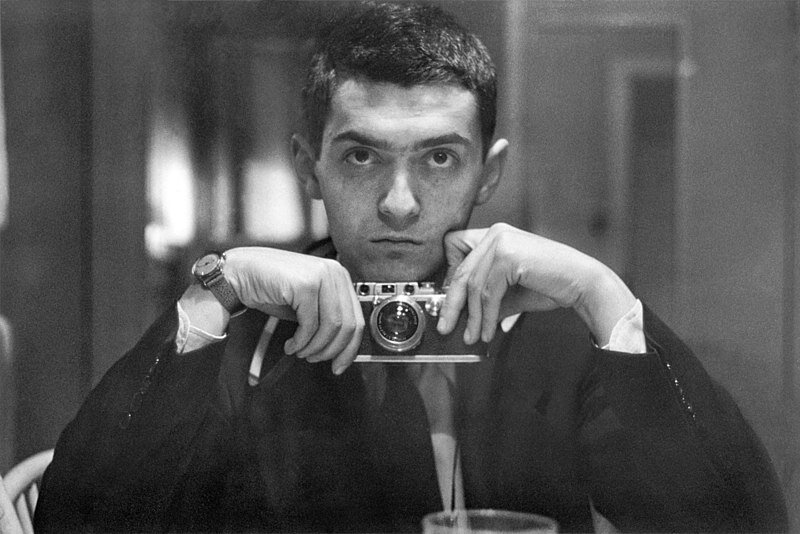
“The best education in film is to make one. I would advise any neophyte director to try to make a film by himself.
A three-minute short will teach him a lot. I know that all the things I did at the beginning were, in microcosm, the things I’m doing now as a director and producer.
There are a lot of noncreative aspects to filmmaking that have to be overcome, and you will experience them all when you make even the simplest film: business, organization, taxes, etc., etc.
It is rare to be able to have an uncluttered artistic environment when you make a film, and being able to accept this is essential.
The point to stress is that anyone seriously interested in making a film should go out and do it.”
For the record, I agree with Mr. Kubrick. To become a filmmaker, one must make films.
Have you have a doubt, don’t worry, we all have doubts! That’s normal. Just keep going.
One step at a time. Get scrappy, get down, and start making films.
Online Filmmaking Programs:
I’ve created the Story Envelope Academy’s 12-week Online Solo Filmmaking Program, which runs twice per year. You’ll become a solo filmmaker and gain a comprehensive filmmaking skillset. You can get on the filmmaking program waitlist here.
More Filmmaking Articles and Guides:
➩ How to Learn Filmmaking? Start with the Fundamentals
➩ The Filmmaking Basics Every Beginner Needs to Know
➩ Three Basic Rules of Visual Storytelling for Filmmaking
➩ How To Make Money Filmmaking
Learn Filmmaking and Get the Gear Guide
If you’re interested in learning filmmaking, check out the Solo Filmmaking Mentorship Program I created for aspiring filmmakers and video creators. It usually goes live once per year. So I recommend getting the Story Envelope Filmmaking letter which comes out a couple of times per month. That way, you can get filmmaking tips for free and find out when the filmmaking course is going live again.
Also, before you go, grab the Solo Filmmaking Gear Guide and Checklist for Beginners.

About the Author
Hi! I’m Colette Nichol. I’m a solo filmmaker and story strategist based out of rainy Vancouver, Canada. I’ve been making videos and micro films for small businesses and global brands since 2014.
Plus, I LOVE to help aspiring filmmakers pursue their dreams and start making films. This blog is designed to help you gain the knowledge you need to become a filmmaker.
If you want more, get on the waitlist for the Story Envelope Academy Solo Filmmaking Mentorship Program. It opens up one time per year and is the best way to become a filmmaking or video pro fast!
CLICK HERE to get on the solo filmmaking mentorship waitlist.